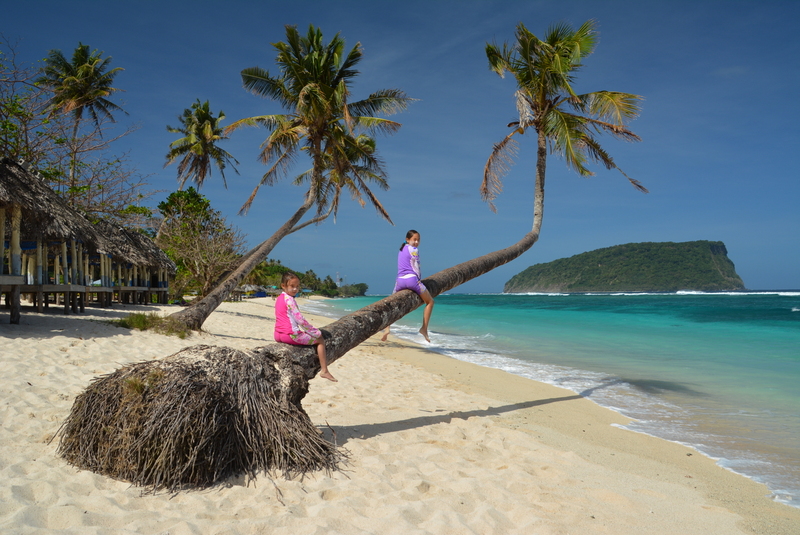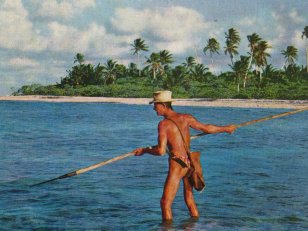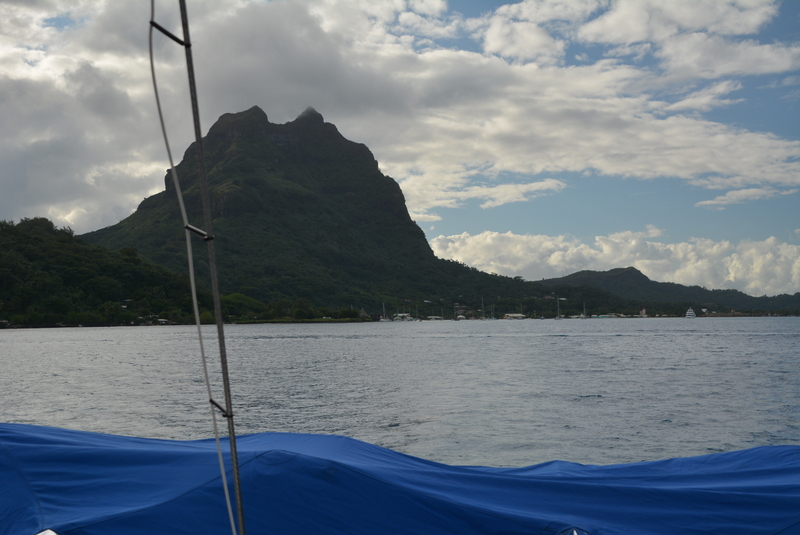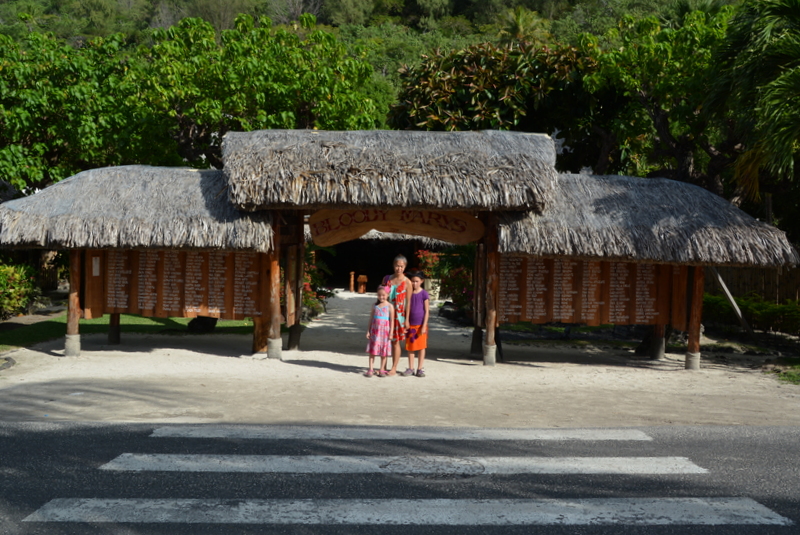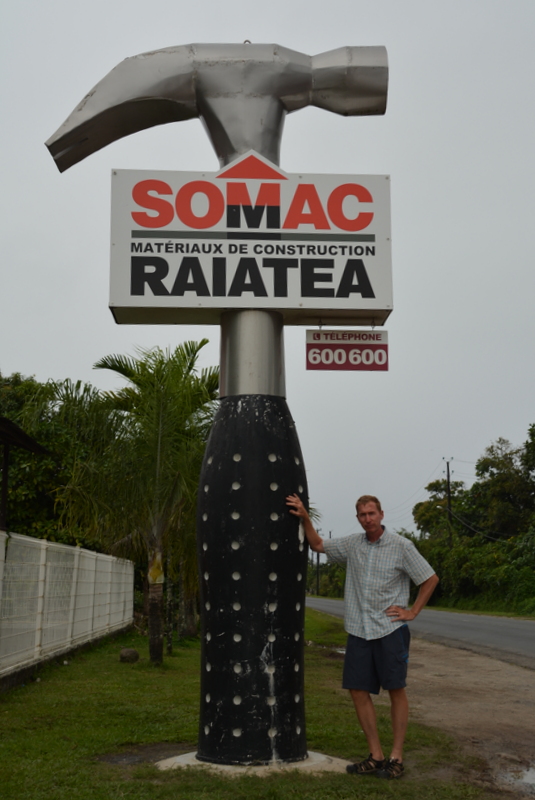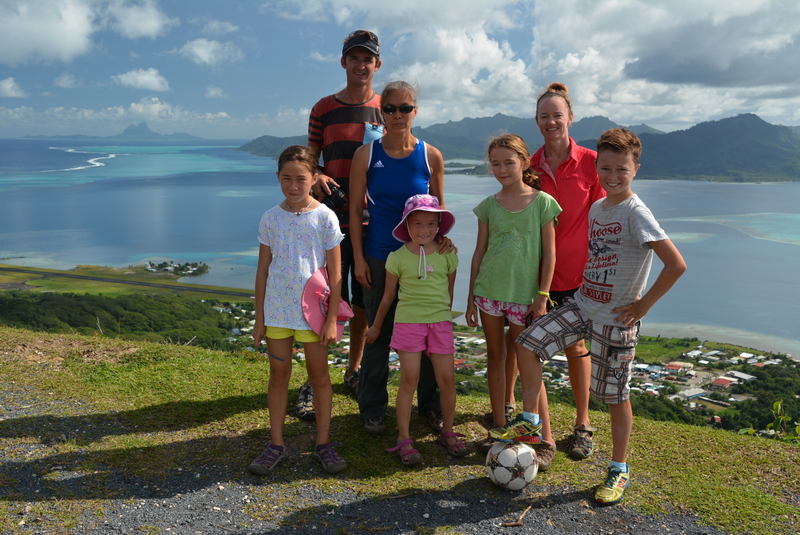- Boat
- Articles
- About
- Tehani-li Logs
- 2004
- Uligan Maldives
- Man, Oh Man, Oman
- Eritrea: The Nicest Place You’ve Never Heard Of
- Cruising Notes: Oman to Eritrea – From Pirates to Cappucinos
- Old Testament Sudan
- Egypt: Legend, Myth and Reality
- Thoughts on Cruising the Red Sea
- Greece: Civilization Again
- Montenegro
- Malta
- Sardinia, Italy
- Barcelona, Spain
- 2003
- 2002
- 2001
- 2004
- Contact
Recent Posts
Jesus Loves Samoa
That is what the signs say and a huge church dominates the anchorage of Apia. The large people here are kind and easy going and the natural beauty that surrounds us is unsurpassed.
Our passage from Suwarrow to Samoa was a tough 536 nautical miles. We had to cross the feared South Pacific Convergence Zone, a large area of disturbed and disturbing weather caused by warm equatorial air meeting colder air masses that surge up from the Southern Ocean. The forbidding SPCZ lies like a police baton across the path of sailors who want to cross the South Pacific. Despite forecasts of “normal trade wind conditions” of 18 knots from behind, we enjoyed 25-35 knots steady, gusting into the 40s the entire trip. The swell kicked up to about a good 12 feet and
Click here to continue readingSuwarrow: Irony Island
After a bouncy 700 miles sail from Bora Bora the intrepid crew of Asmara Sky arrived at a completely isolated atoll right in the middle of the Pacific Ocean which I had long wanted to visit. Suwarrow, also known as “Suvarov,” was named after the Russian vessel which called here in 1814 and is one of only two islands in the South Pacific to bear a Russian name. (The other is apparently “Vostok” somewhere near Tahiti). Suwarrow is uninhabited now just as it was when the Russians found it but archaeological evidence indicates Polynesians lived here in pre-history. Now part of the Cook Islands, the island became well known to the west after a book, autobiographical in nature, was written by one Tom Neale, a New Zealand hermit who lived alone on the atoll for 16 years. His only
Click here to continue readingBora Bora: The Anti-Polynesia
For some Bora Bora may be “the most beautiful island in the world” but we didn’t think so. This island is the most heavily-touristed of all in the South Pacific, the impact of which is seen everywhere. By this I mean mainly in the faces of the people and how they interact with you. Gone are the easy smiles and genuine welcomes. No longer do you hear the mellifluous and spontaneous greeting of “Ia Oranaaa,” as you do everywhere else in the islands. When you buy something or hold the door for someone you will no longer hear a sweet “Maruruuu” either. But you will see plenty of scowling and feel a distinct lack of happiness in the air.
In the rest of French Polynesia the speed limit is a very casual 60
Click here to continue readingRaiatea: The Sacred Island
Other than erecting what must be the largest hammer in French Polynesia, Raiatea is also the home of the most sacred temple in all of Polynesia.
Our first day in Raiatea we climbed the mountain that dominates the northern part of the island with the McMahon family on Seabbatical. The views were spectacular and from that vantage point we could see four islands: Huahine, Tahaa, Bora Bora and Raiatea.
Raiatea is a short 20 mile downwind sail from Huahine and is known as “The Sacred Isle.” This is because on this island can be found the most sacred marae of all marae. A marae is a stone platform on which ancient buildings were erected. This one, Taputapuatea, was a temple and part of a large complex
Click here to continue reading
